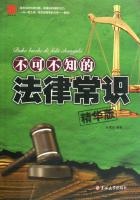Athenian Stranger. Enough of this. And what, then, is to be regardedas the origin of government? Will not a man be able to judge of itbest from a point of view in which he may behold the progress ofstates and their transitions to good or evil?
Cleinias. What do you mean?
Ath. I mean that he might watch them from the point of view of time,and observe the changes which take place in them during infinite ages.
Cle. How so?
Ath. Why, do you think that you can reckon the time which haselapsed since cities first existed and men were citizens of them?
Cle. Hardly.
Ath. But are sure that it must be vast and incalculable?
Cle. Certainly.
Ath. And have not thousands and thousands of cities come intobeing during this period and as many perished? And has not each ofthem had every form of government many times over, now growing larger,now smaller, and again improving or declining?
Cle. To be sure.
Ath. Let us endeavour to ascertain the cause of these changes; forthat will probably explain the first origin and development of formsof government.
Cle. Very good. You shall endeavour to impart your thoughts to us,and we will make an effort to understand you.
Ath. Do you believe that there is any truth in ancient traditions?
Cle. What traditions?
Ath. The traditions about the many destructions of mankind whichhave been occasioned by deluges and pestilences, and in many otherways, and of the survival of a remnant?
Cle. Every one is disposed to believe them.
Ath. Let us consider one of them, that which was caused by thefamous deluge.
Cle. What are we to observe about it?
Ath. I mean to say that those who then escaped would only be hillshepherds-small sparks of the human race preserved on the tops ofmountains.
Cle. Clearly.
Ath. Such survivors would necessarily be unacquainted with thearts and the various devices which are suggested to the dwellers incities by interest or ambition, and with all the wrongs which theycontrive against one another.
Cle. Very true.
Ath. Let us suppose, then, that the cities in the plain and on thesea-coast were utterly destroyed at that time.
Cle. Very good.
Ath. Would not all implements have then perished and every otherexcellent invention of political or any other sort of wisdom haveutterly disappeared?
Cle. Why, yes, my friend; and if things had always continued as theyare at present ordered, how could any discovery have ever been madeeven in the least particular? For it is evident that the arts wereunknown during ten thousand times ten thousand years. And no more thana thousand or two thousand years have elapsed since the discoveries ofDaedalus, Orpheus and Palamedes-since Marsyas and Olympus inventedmusic, and Amphion the lyre-not to speak of numberless otherinventions which are but of yesterday.
Ath. Have you forgotten, Cleinias, the name of a friend who isreally of yesterday?
Cle. I suppose that you mean Epimenides.
Ath. The same, my friend; he does indeed far overleap the heads ofall mankind by his invention; for he carried out in practice, as youdeclare, what of old Hesiod only preached.
Cle. Yes, according to our tradition.
Ath. After the great destruction, may we not suppose that thestate of man was something of this sort:-In the beginning of thingsthere was a fearful illimitable desert and a vast expanse of land; aherd or two of oxen would be the only survivors of the animal world;and there might be a few goats, these too hardly enough to maintainthe shepherds who tended them?
Cle. True.
Ath. And of cities or governments or legislation, about which we arenow talking, do you suppose that they could have any recollection atall?
Cle. None whatever.
Ath. And out of this state of things has there not sprung all thatwe now are and have: cities and governments, and arts and laws, anda great deal of vice and a great deal of virtue?
Cle. What do you mean?
Ath. Why, my good friend, how can we possibly suppose that those whoknew nothing of all the good and evil of cities could have attainedtheir full development, whether of virtue or of vice?
Cle. I understand your meaning, and you are quite right.
Ath. But, as time advanced and the race multiplied, the world cameto be what the world is.
Cle. Very true.
Ath. Doubtless the change was not made all in a moment, but littleby little, during a very long period of time.
Cle. A highly probable supposition.
Ath. At first, they would have a natural fear ringing in theirears which would prevent their descending from the heights into theplain.
Cle. Of course.
Ath. The fewness of the survivors at that time would have madethem all the more desirous of seeing one another; but then the meansof travelling either by land or sea had been almost entirely lost,as I may say, with the loss of the arts, and there was greatdifficulty in getting at one another; for iron and brass and allmetals were jumbled together and had disappeared in the chaos; nor wasthere any possibility of extracting ore from them; and they hadscarcely any means of felling timber. Even if you suppose that someimplements might have been preserved in the mountains, they mustquickly have worn out and vanished, and there would be no more of themuntil the art of metallurgy had again revived.
Cle. There could not have been.
Ath. In how many generations would this be attained?
Cle. Clearly, not for many generations.
Ath. During this period, and for some time afterwards, all thearts which require iron and brass and the like would disappear.
Cle. Certainly.
Ath. Faction and war would also have died out in those days, and formany reasons.
Cle. How would that be?















